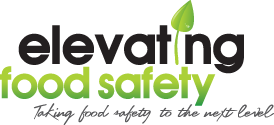Communication is the key when it comes to change management. Managing a bakery involves many different functions some of which include forecasting, planning, ordering raw materials, developing new products, reducing waste, managing people, changing suppliers, buying new equipment, selling, distributing and manufacturing product.
Regardless of the change it needs to be managed well and the best way to manage change successfully is to communicate clearly and effectively with all parties involved.



Any change made in your business must be communicated clearly and with the right people so that the necessary change(s) can be made to prevent waste or downtime later on. Worst still, to prevent a food safety recall occurring.
As simple as it is to change a label on product packaging this still needs to be communicated clearly to ensure all relevant parties are aware and any changes needed are carried out within their functional areas.
Ingredient changes are very important to be captured so quality and food safety processes can be reviewed and required changes made safely.
I have been involved in a situation previously where procurement was not notified by the supplier that Australian sunflower seeds were no longer available. As this change was not communicated clearly they received numerous complaints from consumers with broken teeth.
The supplier decided to order sunflower seeds from China and did not report it. Not reporting the change did not allow QC testing to be carried out or for a decision to be made if the sunflower seeds coming out of China were safe to use. Unfortunately it took numerous consumer complaints to identify there was a serious quality and food safety issue with rocks in the sunflower seeds being sourced from China.
If this change was reported it would have allowed the quality representative to conduct the required review and approve the use of the new product.
Reporting such serious and alarming food safety complaints occurring which can escalate into a food safety recall.
The 5 most common changes not executed effectively are as follows:
1. Recipes and Formulations: Change in ingredient volume or type of ingredient used in any recipe or formulation needs to be reported and required action taken to ensure the nutritional value, the ingredient listing or allergen declaration are not affected in any way that may become misleading or harm the consumer in anyway.
2. Equipment Settings: Change with equipment settings are often overlooked as a minor change. We can never under estimate any change that is made as it can affect the product in many ways. We need to clearly communicate and follow company policy when making changes to equipment to prevent a quality or food safety incident occurring.
3. Scheduling: A change in production scheduling, forecasting or even with delivery needs to be reported to the management / executive team. This allows required changes to be made and executed correctly in every functional department to prevent a quality or food safety incident occurring.
4. Planned Maintenance: All planned maintenance work should be reported to functional departments allowing food safety risk assessments to be completed and all required actions identified, addressed and followed up. It is common to outsource planned maintenance work which creates another important need to effectively communicate the work being done and by whom. This also reiterates all processes that need to be adhered to and contractors work supervised and signed off on once completed. This will reduce the likelihood of product being contaminated or out of specification.
5. Trial Product: When trialing a new product or a new recipe you need to decide if the trial product will be released into the public. If you decide to release the trial product all relevant functional departments need to be aware so the required precautions can be taken and executed to prevent a quality or food safety hazard occurring.
If you can clearly communicate and execute your business expectations around change management you will avoid or reduce the potential of a serious food safety incident occurring and quite possibly escalating to a food safety recall.
You cannot over communicate, so it is best to share all proposed and actual change to ensure processes in place are followed and correctly executed.
Yours in encouragement, Dijana Green – Founder and CEO Elevating Food Safety Pty Ltd
www.elevatingfoodsafety.com.au

















Get Social